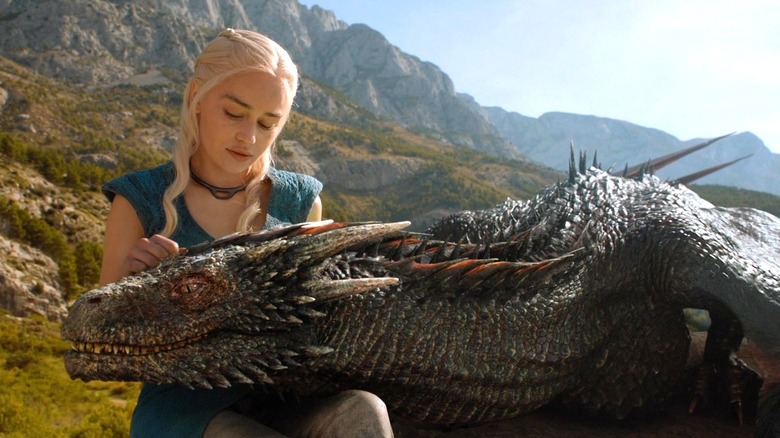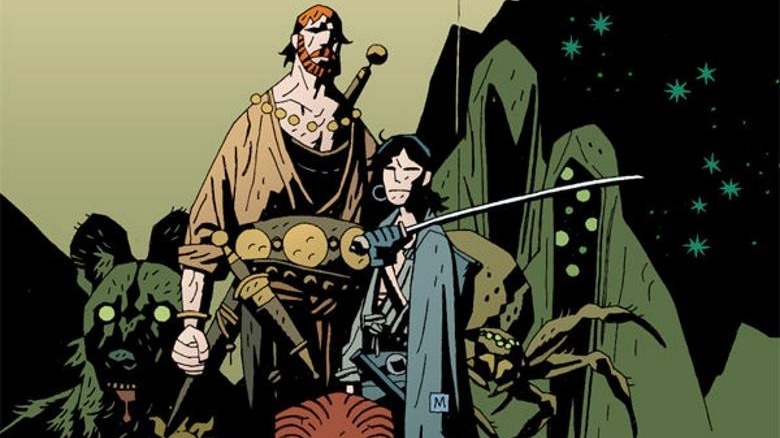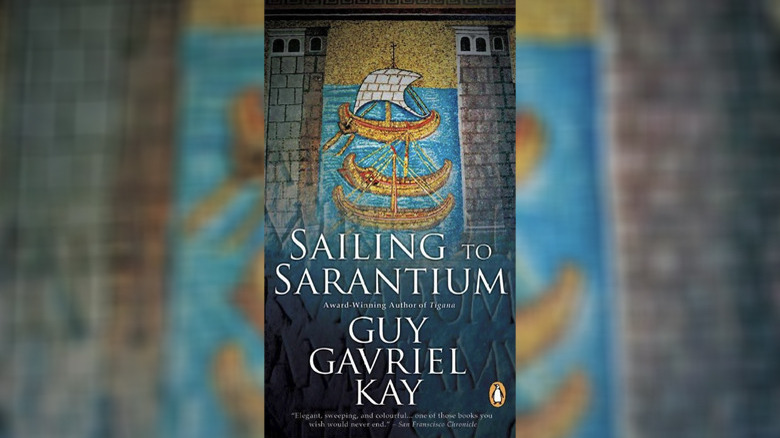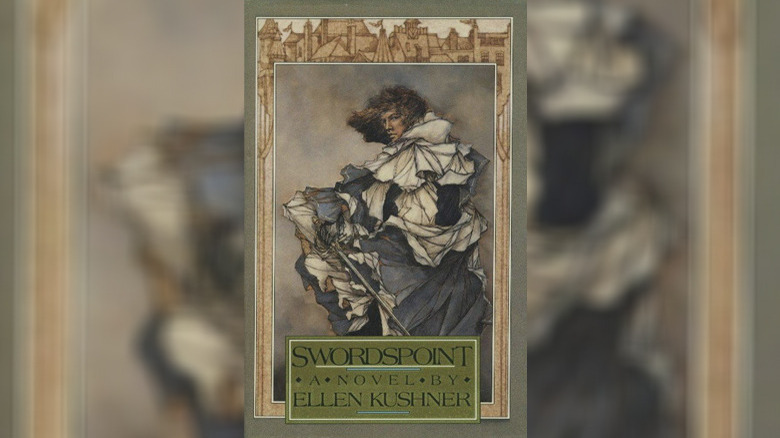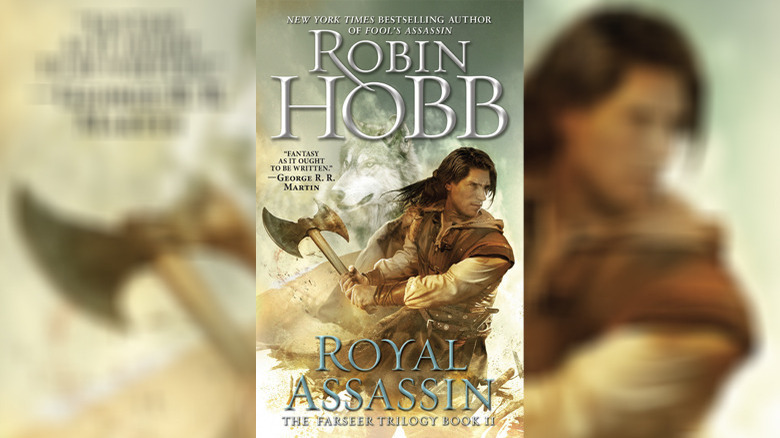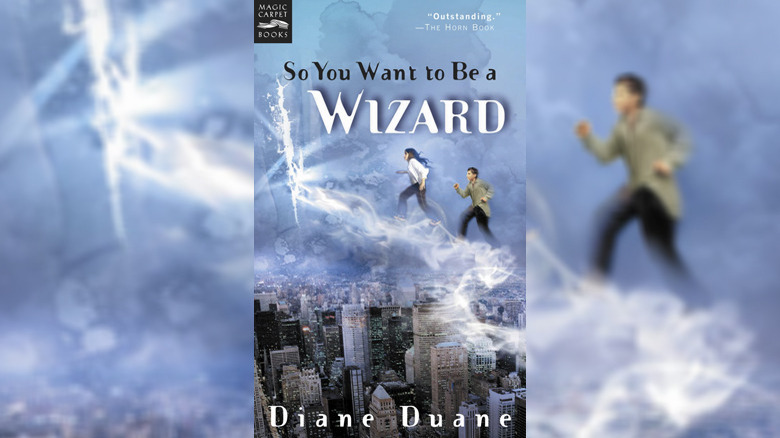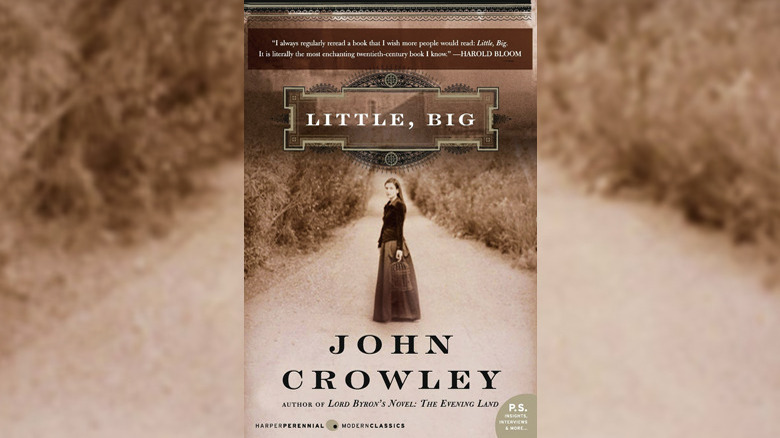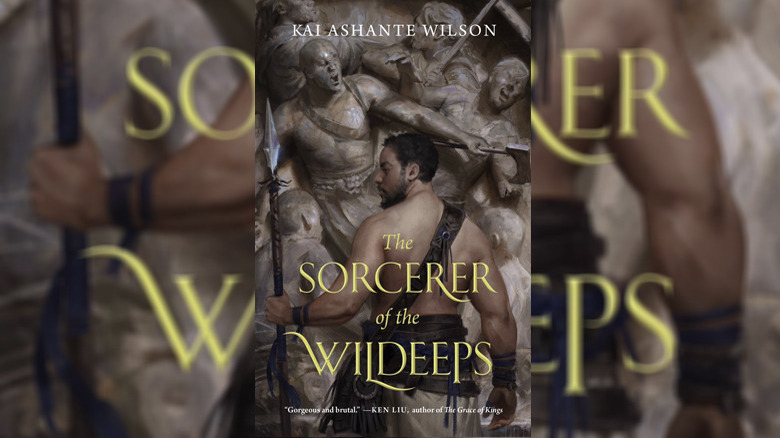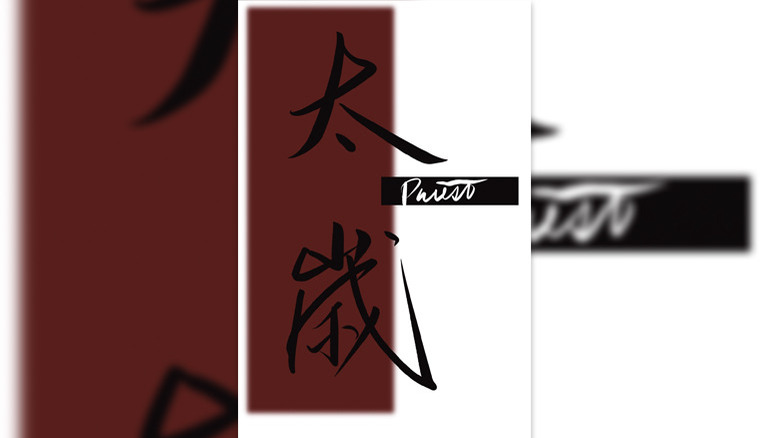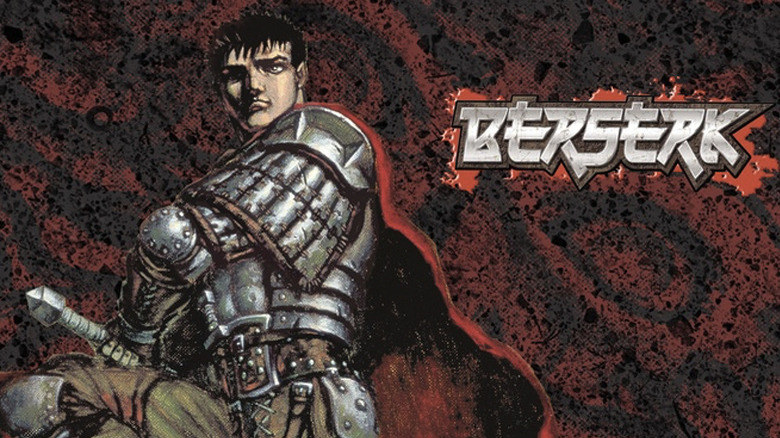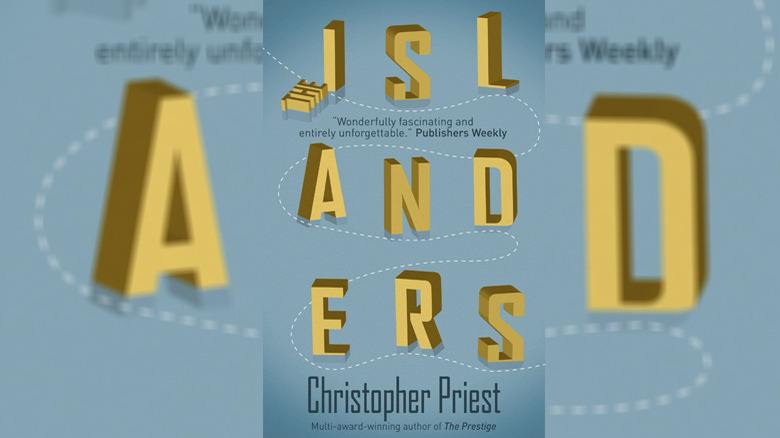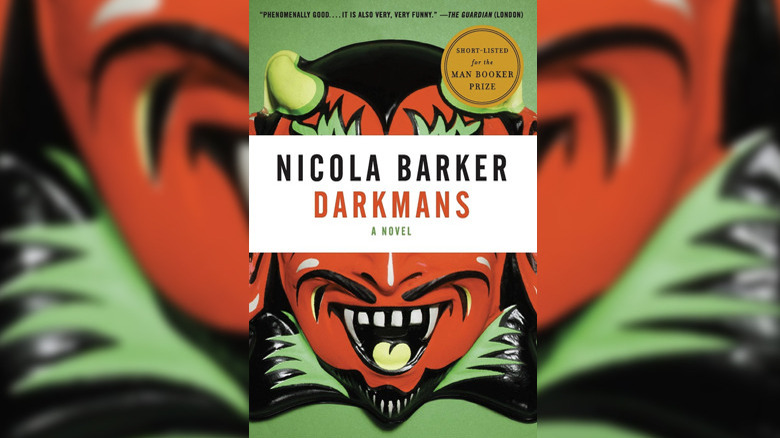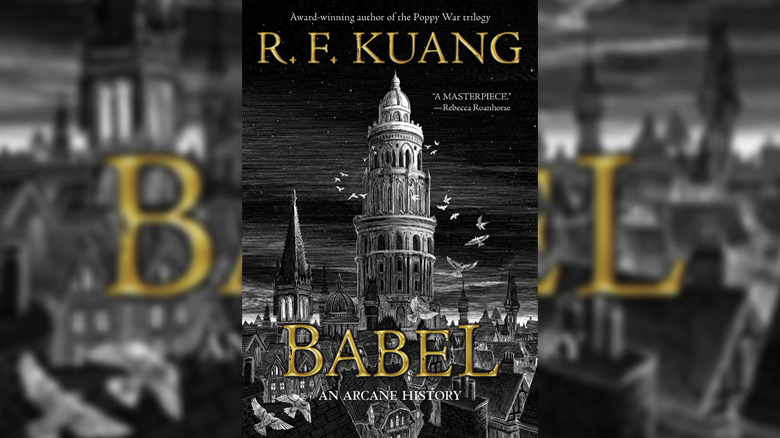12 Fantasy Novels That Deserve To Be Adapted To TV That Aren't Game Of Thrones
Fantasy is once again resurgent on our television screens. "House of the Dragon," a spin-off of the mega-hit "Game of Thrones," is in the middle of its first season. Meanwhile, Amazon has launched "The Lord of the Rings: The Rings of Power," one of the most expensive television productions ever made. As a fan of genre fiction, I suppose I should be celebrating. Instead, I can't help but be frustrated. The genre of fantasy includes countless weird and fascinating works, including the award-winning "Broken Earth" trilogy published in just the past few years. Yet several of the novels being adapted are epic fantasy stories published in the 1990s. What about everything else?
The following is a list of fantasy works I believe would make excellent television. Some are set in other worlds, others are set in ours. Some are short stories, others are long-running works of webfiction. I sought to strike a balance between canonical classics, recent masterpieces, and oddball picks. As far as I know, none of them have been optioned. I took care to note in each entry what challenges there might be in bringing these works to the screen, and how the cast and crew of each production might overcome those challenges. If you have not yet read everything on this list, I can vouch for all of them; however, one may require you to learn Chinese.
Fafhrd and the Grey Mouser
Dungeons & Dragons is more popular than ever, buoyed by the success of actual play podcasts like "Critical Role" as well as cameos on television shows like "Stranger Things." (Plus, it has its own movie coming up.) So why not bring back "Fafhrd and the Grey Mouser," whose adventures defined the tone and range of countless roleplaying campaigns? Unlike the heroes of fantasy epics like "The Lord of the Rings," Fritz Lieber's rapscallion duo prefer food, sex, and money to honor and duty. The only time you'll catch them saving the world is when two eldritch wizards scam them into doing so. But then, their human frailty is just what makes these two characters appealing. Not to mention their filthy but wondrous home city of Lankhmar, which Terry Pratchett would spoof as Ankh-Morpork in his popular "Discworld" novels.
The other appealing aspect of the Fafhrd and Grey Mouser stories, especially for a television adaptation, is just how weird the best of them are. In one of them, Fafhrd and the Mouser break up and spend the whole story apart. In another, the city is threatened by an extra-dimensional shopping district promising too-good-to-be-true deals. A talented writers' room willing to cut judiciously and adapt these stories for the times could have a field day with this series.
The Sarantine Mosaic
That there has not yet been a television adaptation of Guy Gavriel Kay's work is befuddling. Not only is Kay an award-winning fantasy author whose novels precede "Game of Thrones" in their evocation of real history, he's also an author with a direct connection to the Tolkien family, having assisted Christopher Tolkien in editing "The Silmarillion." You would think that executives would be tripping over each other in a rush to adapt his work to the screen. Perhaps the problem is that Kay himself isn't much for writing multi-entry stories. While his novels share a setting, the majority are standalones featuring distinct characters whose tales are over and done with by the end of each book.
"The Sarantine Mosaic" is an exception. A duology of novels about empire, chariot-racing, and art-making, it's a fan-favorite among Kay's body of work. It serves as a historical prequel to the similarly beloved "Lions of Al Rassan," providing the production team with a follow-up project if a "Mosaic" adaptation is successful. There's even a bit of numinous, world-shaking magic, although Kay's work tends to be even more restrained than George R.R. Martin in this regard. Kay is a deft hand at both writing memorable characters and building tangible worlds, and "The Sarantine Mosaic" represents his most sustained effort until his recent trilogy starting with "A Brightness Long Ago."
Swordspoint
Ellen Kushner's "Swordspoint" takes place in a decadent city, where powerful nobles hire professional duelists to fight each other's battles. Richard St. Vier is one of the best duelists there is, and his boyfriend Alec is a temperamental genius with a suspicious family heritage. The on-again, off-again relationship between these two larger-than-life figures and their descendants forms the core of a surprisingly short body of work, which includes the ambitious but flawed follow-up "The Fall of the Kings" (co-written by Delia Sherman), the excellent coming-of-age tale "The Privilege of the Sword," and the recent "Tremontaine" serialized on Realm by a team of authors led by Kushner.
The majority of Kushner's novels are witty regency melodramas featuring politics and good old-fashioned dueling, with hardly any magic. But then, while "The Fall of the Kings" would add plenty of magic to the equation, I don't know if these books really needed it. Jo Walton has written that the "Swordspoint" books are less traditional epic fantasy than they are a classic family saga in the vein of Trollope. These are stories about big emotions, schemes within schemes, and close-knit relationships between difficult people who you can't help but root for anyway. It's an awkward sell in a fantasy market, but an easy pitch in today's TV market, especially in the wake of a show like "Our Flag Means Death."
The Farseer Trilogy
Robin Hobb's books follow a simple formula: Take a flawed but sympathetic character and have them eat dirt for 800 pages at a time until they are forced to change out of necessity. That might sound like painful reading material, but fantasy fans of a certain age devoured Hobb's books. She is very good at putting the reader directly into the shoes of her characters, developing them through what they notice as well as what they leave out of the stories they tell. Her initial "Farseer Trilogy" does a fantastic job fleshing out its protagonist Fitz, subjecting him to an adolescence that feels as brutal and frustrating as the real thing — even as it is exaggerated beyond belief. Later series, like the "Liveship Traders" trilogy, increased the number of characters in play while further perfecting Hobb's craft.
The author's novels lend themselves well to television for several reasons. She prioritizes complex, messy characters over epic plots, providing plenty of great material for actors to dig into. The magic in her settings is prominent but more often includes body-swapping, telepathy, and brainwashing than fireballs or dragons (although dragons do eventually appear). She's written many novels running for hundreds of pages, most of which are set in the same world. Many of these books include prominent animal parts, but if HBO kept the direwolves in "Game of Thrones," they might as well give Fitz a pet wolf on television.
So You Want to Be a Wizard
Harry Potter casts such a long shadow in the history of publishing that it's easy to forget that it was not the first novel about child wizards — not by a long shot. Diana Wynne Jones's "Chrestomanci" novels followed the life and career of a wizarding government official regulating the use of magic across the multiverse. Jane Yolen's "Wizard Hall" told a less sprawling but still memorable story about Henry, a boy who attends a magic school despite exhibiting little in the way of magical talent. (It also features the Quilting Beast, who remains frightening to this day.) I love both of these stories and would love to see them adapted. But the best fit for a television series has to be Diane Duane's "Young Wizard" books, starting with "So You Want to Be a Wizard" from 1982.
"So You Want to be a Wizard" follows the adventures of Nita and Kit, two children given the responsibility of magical powers. Unlike Harry, though, the two of them are thrown immediately into the action, fulfilling their duties everywhere from the deep ocean to Mars to a mythic Ireland. Their foe is the Lone Power, a being of entropy that can be fought off or even befriended, but never truly defeated. Duane has a fascinating career that includes several well-received "Star Trek" tie-in novels as well as contributions to the influential animated series "Gargoyles." The "Young Wizard" books have as much to do with "Star Trek" as they do with traditional fantasy stories, including elements of science fiction along with difficult ethical quandaries. The rawest of these books, like 2001's "The Wizard's Dilemma," rival the best contemporary young adult literature in their fearlessness.
Little, Big
John Crowley's "Little, Big" begins with the marriage of a man named Smoky Barnable to a woman named Daily Alice Drinkwater. Smoky travels to live with Alice and her family in a house that is many houses. Over the course of the novel, the reader comes to learn of the many members of the Drinkwater family, the strange coincidences that dog their footsteps, and an old contract binding them to a future that has not yet been written. "Little, Big" is a love story, a family story, and a fairy story. At times it's a weirdly prescient political tale. And at the very end, it is a novel about the apocalypse, and the function that stories serve. "LIttle, Big" is slow, but the final pages hit with the strength of a star collapsing into a black hole. Few other fantasy novels are as successful at evoking the numinous without ever losing sight of its characters.
"Little, Big" is baggy enough that a film adaptation would likely come up short. A television series would allow for episodic storytelling, giving the novel's many characters and timelines a chance to breathe. The danger of a "Little, Big" adaptation lies in diluting its heady sense of awe into a facile twee-ness. The strength of Crowley's novel is that the world of Faerie lurking beneath its pages inspires fear and awe as much as it does beauty. An adaptation that recognized this, while still centering the relationships of its characters and their small joys, could really be something special.
The Sorcerer of the Wildeeps
Over the past few years, the publishing imprint Tor.com has been putting out novellas spanning genres and subject matter, written by a murderer's row of talented and diverse authors. My personal favorite is "The Sorcerer of the Wildeeps," a sword and sorcery tale that takes place in a future setting so far removed from the modern day that it might as well be magic (my favorite kind!). It's the tragic story of Demane, a Sorcerer who carries the power of a monster in his blood, and Isa, a god-blessed captain who briefly joins his caravan. Despite the sad ending, the novella crackles with energy throughout. Wilson switches on a dime between everyday dialogue loaded with modern slang, and an alien and quite frightening high fantasy register. The result is a novel that impresses not just through its ideas, but through the inspired delivery of those ideas.
There are many challenges that might face an adaptation of "The Sorcerer of the Wildeeps." Translating the appeal of the dialogue from the page to the screen would require a careful hand. Additionally, the novella is built around its ending in such a way that a film may be a better fit for this story. But the framework of Demane traveling from place to place, inching closer to his inevitable estrangement from humanity despite his best efforts, is as good a fit for the medium of television as any.
Tai Sui
"Tai Sui" is a webnovel by Priest, a prominent web novel author whose most acclaimed works are to be found in the "danmei" (or "boy's love") scene. Her works "Guardian" and "Word of Honor" have been already been adapted to television. Compared to these, "Tai Sui" deemphasizes the romance element, but is perhaps even more ambitious. It represents her attempt at a "cultivation fantasy," telling the story of a foppish noble named Xi Ping, who is unexpectedly selected among the people of his city to train as an immortal in the mountains. It's a chance that many his age would kill for, an opportunity to transcend the limitations of the body and attain unlimited power. But Priest is too sneaky to give the reader a straightforward power fantasy, and so Xi Ping is soon possessed by the ghost of an "evil cultivator" known as Tai Sui. As the secrets of the world unravel and Xi Ping is radically changed by his experiences, "Tai Sui" imagines a society in revolt against the conventions of Chinese pulp fiction.
Featuring grand-scale set pieces, a large cast of characters, and some memorable creatures, "Tai Sui" would certainly be a challenging story to adapt to TV. But then, "The Untamed" survived the transition to screen (adapted from "Grandmaster of Demonic Cultivation" by Mo Xiang Tong Xiu) to become the biggest pop culture export from China in years. "Tai Sui" represents an opportunity to take an even bigger swing, just as danmei becomes increasingly popular abroad. (Assuming an upcoming TV adaptation of Priest's "Sha Po Lang" doesn't beat it to the punch.)
Berserk
"Berserk" is one of the most influential comics of all time. This year's biggest hit video game, "Elden Ring," took its big golden tree directly from "Berserk." Guts, the hero of "Berserk," swung a sword as long as he was tall years before Cloud did the same in "Final Fantasy VII." There have already been two animated series and a movie trilogy. So why adapt "Berserk," which defined the language of dark fantasy in Japan and abroad, into a live-action television series? After all, creator Kentaro Miura passed away just last year. While his talented assistants at Studio Gaga are doing their best to follow up his work, the series currently lacks an ending.
There are certainly aspects of "Berserk" that would be exceedingly challenging to adapt for television. Recent volumes of the series feature monsters the size of buildings and all kinds of ambitious set pieces that would push even the most generous special effects budget to the max. At the same time, a "Berserk" live-action series would present certain opportunities that the anime adaptations could not afford. Miura's art is so detailed that even the well-loved first anime series had to compromise in order to be feasible. Real-life props and sets could provide a texture that no adaptation so far has been able to replicate. As for the story itself: Dated as it is, the tragedy and rebirth of Guts remains as heartbreaking now as it was in the '90s.
The Islanders
Christopher Priest is best known today for his novel "The Prestige," which was adapted in 2006 into a well-liked Christopher Nolan film. But Priest has written many other novels, all of which interrogate the stories we tell ourselves and others. Most of these are relatively short and feature big, reality-shattering twists, making them a better fit for film than television. But his 2011 novel "The Islanders" is an exception, if only because of its unusual format.
The novel is an alphabetical travel guide to what Priest calls the "Dream Archipelago," a cluster of islands whose names and distance from each other are mutable. A central mystery winds through this guide, with a solution that is tantalizingly within reach and yet seemingly contradictory. Yet "The Islanders" is as much a short story collection as it is a novel, with plenty of time for detours (or are they?) into art criticism, dry comedy, and bone-chilling horror. When Ursula K. Le Guin says "[t]he thryme lives on the island of Aubrac Grande, and you really do not want to meet it," believe her!
Darkmans
Nicola Barker's "Darkmans" was nominated for the 2007 Man Booker Prize, but did not win. At over 800 pages of absurd digressions, quirky characters, and genre-bending brio, it is not a novel for everyone. Personally speaking, though, I find "Darkmans" even more relevant today than it was on its publication. Years before fascism and social media discourse became a popular topic of discussion, Barker predicted an age of spectacle that would link the opacity of the present day with the Middle Ages. The cast of "Darkmans," who struggle to find happiness in the town of Ashford, are repeatedly thwarted by the ghost of a jester from the 14th century. It's like a very British "Twin Peaks," if BOB was a real person instead of a monster possessing a familiar face.
"Darkmans" wasn't marketed as a fantasy, and folks may find its inclusion confusing on a list that includes relatively straightforward genre fiction like "The Farseer Trilogy." But fantasy is just as useful an ingredient as it is a genre onto itself. The novel is satisfying enough as a black comedy about broken people, but it's the constant destabilizing presence of the ghost that makes it really great. I don't trust a team in the United States to handle this material, but a talented crew located in the United Kingdom could do something fascinating with it.
Babel
R.F. Kuang made her name with "The Poppy War" and its sequels, a ruthless epic fantasy trilogy riffing on 20th century Chinese history. Her newest work is "Babel," a novel that embodies the cutting edge of modern genre fiction. It is a story about academia, drawing on Kuang's own experiences as a teacher and a student. It is also a story about empire, and whether reform is a practical or hopelessly foolish means of changing corrupt systems. "Babel" speaks to the beauty of language, but also to how language is rigorously controlled by a system of power that persists today.
While "Game of Thrones" sought to invest the epic fantasy of Martin's time within the texture of real history, several prominent writers in modern fantasy ask direct questions about the here and now. What does it mean to live and thrive within an imperial system? How does one navigate the ruins of its collapse? Can a fairer, more equitable system be constructed from the rubble, built by and for the marginalized? There are authors right now busy imagining what that imperfect utopia might look like. At the same time, there are also artists like Kuang who have occupied themselves with tearing into those fantasies constructed, deliberately or unknowingly, by the makers of our current imperial reality. Considering the industry of think-pieces that sprung up around the "Game of Thrones" television series, I would hope that a "Babel" adaptation would frustrate and inspire just as many people.
